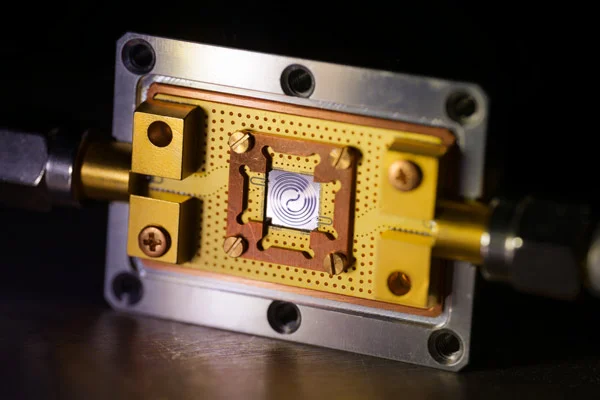
Innovate UK’s £5.4 million three-year project to use quantum technology to develop cutting-edge battery manufacturing solutions, to drive productivity and economic growth in the sector, and support the country’s unprecedented transition to electrification. Because wlectric vehicles (EVs) are forecast to account for 1 in 5 car sales by 2026, experts believe that the demand for its most valuable component – the lithium-ion battery – will soon skyrocket.
AMTE Power is leading the project, dubbed Project Quantum, according to a story on its website. The company adds that the project aims to commercialize known quantum technology, to address identified inefficiencies and challenges in the manufacture of lithium cells.
Quantum technology enables highly sensitive measurements of magnetic fields to improve quality yields, and effectively grade new batteries – reducing the time taken for the ageing process from weeks to days. This sophisticated system will be integrated into AMTE’s pouch cell assembly, with test processes trialled on their range of cells, which are currently being scaled-up and commercialized for the niche automotive market.
Project Quantum aims to place the UK at the forefront of scalable battery production – a market forecast to be worth $5 billion in five years’ time.

Kevin Brundish, CEO at AMTE Power, said Project Quantum signals a new era in UK manufacturing.
“AMTE Power is proud to be leading on a project that will support the scalable, onshore production of clean, affordable transportation, enabled by an extensive team of world-class industry and academic partners,” he said. “Making the battery production process both more efficient and greener is a crucial step towards the UK meeting its zero-carbon climate objectives, especially as approximately 50 per cent of vehicle production will be wholly, or partially, electric by 2030. The collaborative Project Quantum firmly cements the country’s exceptional talent and capabilities within the research and development of pioneering cell technology, helping the UK to become more competitive on the international stage.”
Brundish added that battery manufacturers face a bottleneck of cell formation and ageing processes – which can take up to three weeks and account for a staggering 30 per cent of the cost.
“There is an urgent need for rapid, continuous and non-invasive monitoring of the cell ageing process on the production line,” he said. “New quantum sensing technology can cut the cost of production and provide additional capability in grading battery quality, meaning more cells can be produced in a shorter space of time – greatly impacting the bottom-line. This will prove vastly beneficial to the industry as a whole, and provide innovative UK manufacturing businesses such as ourselves with a competitive edge, enabling us to take market share earlier with the very highest quality power cells.”
According to officials the UK-BIC (Battery Industrialization Centre) facility, will soon be opened with an aim to transition the UK into a world leader in battery development and manufacture, complementing AMTE Power’s ambition to open the country’s first gigafactory – capable of producing millions of cells onshore every year.
If you found this article to be informative, you can explore more current quantum news here, exclusives, interviews, and podcasts.















